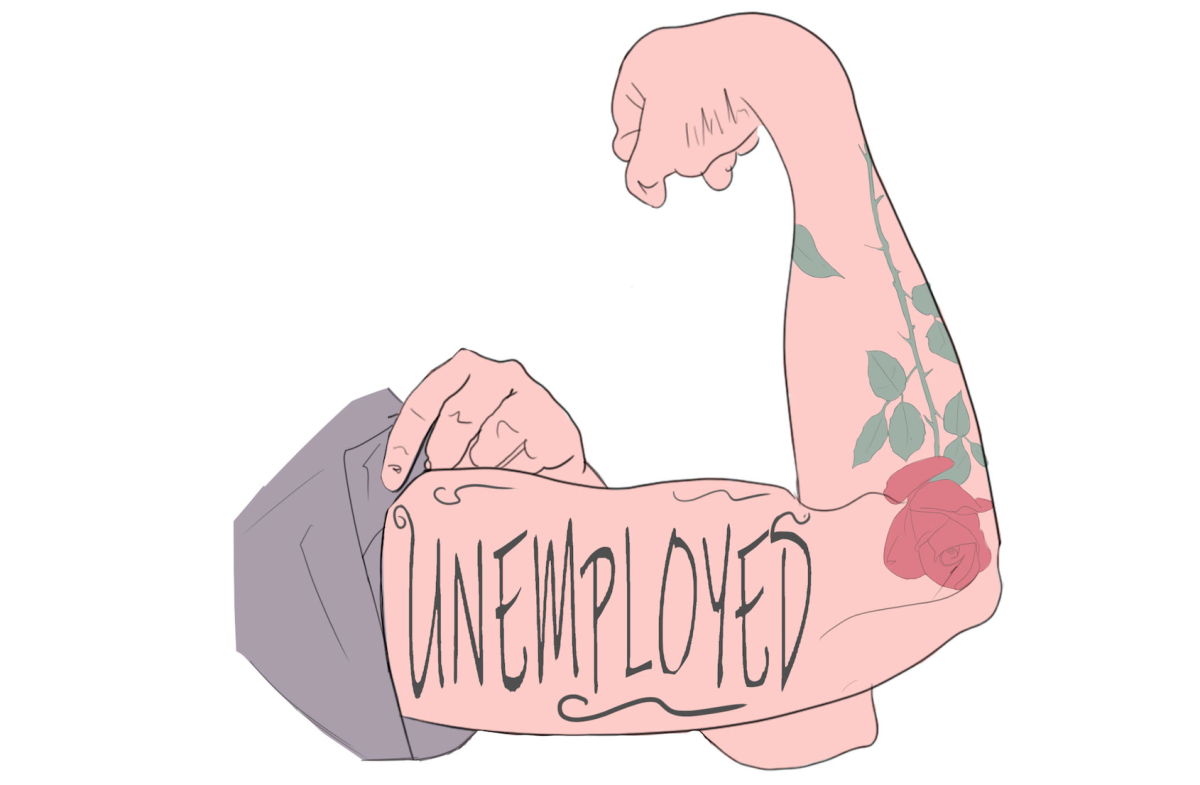Editor’s note: This article is a part of a head-to-head. Read the other article here.
A tattoo shouldn’t be more important to you than receiving a job.
A friend recently came to me and asked me if he should get a neck tattoo. My first response was, “Well, do you want to be employed?” I know this is an old-fashioned way of thinking, but the majority of today’s employers are a part of an older generation.
Being hired should solely be based on your skills and qualifications for that specific job, not on your appearance or background. It’s not that body modifications don’t belong in the workplace, it’s that they’re not yet widely accepted in the workplace. Frankly, I’d rather have a job than a neck tattoo.
Workplace discrimination is a real and unjust thing, and I completely disagree with it. Not hiring someone because of their race, sexual orientation, religion, disability or gender is illegal and anyone who shows prejudice while hiring someone should be held responsible for their actions.
I don’t think body modifications count as workplace discrimination because unlike race, sexual orientation or gender, body modifications are a choice you make. It’s fair, at least under the law, to not hire someone because of his or her body modifications.
Getting a visible tattoo, dying your hair an unconventional color or piercing your eyebrow are signs that you care more about your aesthetic than employment. That will show in an interview and may keep you from receiving the job.
I don’t think it’s fair that this is the world that we live in, but we have bigger fights to fight than standing up for purple hair. It’s not that body modifications are inherently evil. In fact, I would love tattoos all over me, but I know other people would view this as unprofessional.
People with body modifications are just like everyone else. Some people express themselves with clothes, makeup or different hair styles. Others express themselves with tattoos, colored hair and piercings. There is nothing wrong with how people express themselves, unless it interferes with their future.
Tattoos are beautiful and wonderful pieces of art people choose to put on their skin. However, keeping your tattoos below your neck and between your knees and elbows is safer than being unemployed. Body modifications are an expression of who a person is, and anyone with them deserves to be seen for who they are.
Most people’s issue with visible body modifications isn’t who the person actually is, it’s the stereotype behind them. The stereotype of people, although unfair, is that they are rebellious or irresponsible.
Many see tattoos as taboo, or a sign that the person with them is rebelling against something. Although this often isn’t the case, this assumption is one that many people in positions of power still hold.
Tattoos or other drastic body modifications are generally not seen as a problem within the creative community, including musicians, photographers and artists. More creative jobs are more accepting of tattoos because people in that field are generally more progressive. More traditional careers in medicine, education, law and most others do not as easily accept those with body modifications, regardless of their qualifications.
Tattoos and other visible body modifications are much more accepted today than they were 10 years or 20 years ago. However, more accepted does not equal completely accepted.
I hope that one day, every workplace allows its employees to look any way they please, but today is not that day. Today we have to worry about sexism, racism and sexual harassment in the workplace first and foremost. Maybe tomorrow we’ll worry about your neck tattoo.
Ashlon Lusk is a 20-year-old mass communication sophomore from Houston, Texas.








